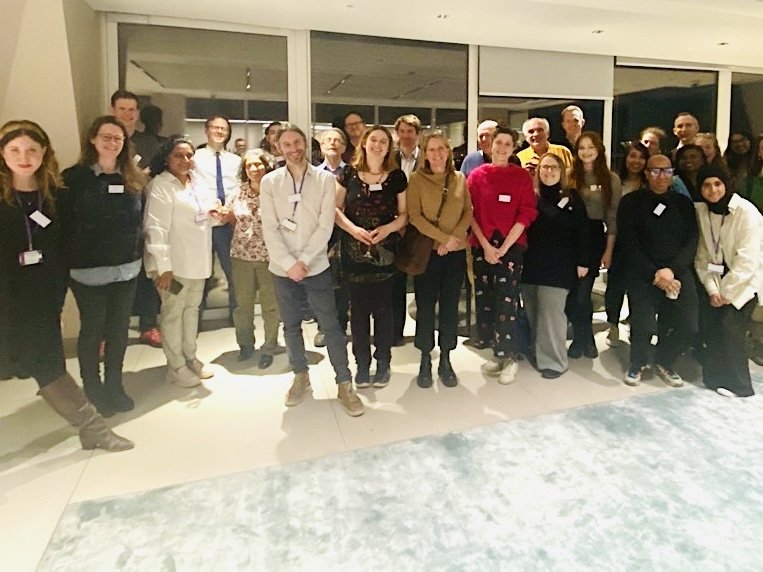Power in Community Knowledge - TSIP’s partnership approach to climate justice
People and nature are interconnected. The relationships we build are invaluable to human connection in which factors such as the environment, civil society and economics impact how we engage with the world around us. Nonetheless, there are growing concerns and complexities about climate change with a wide range of voices engaging in the discussion about how to best tackle the related issues.
However, are these voices representative of those communities and groups across London most affected by climate change?
Breathe London Community Programme Event
At TSIP, this is one of our leading questions across our climate focussed projects given the disproportionate impact of climate change on diverse communities who often produce the least amount of air pollution. Our approach to this is grounded in the belief that community assets are valuable - whether through their lived and learnt experiences, testimonies, educational background or simply observation. Increasing participation through capacity building, and the nurturing of these assets, is a significant way to amplify the voices of local individuals, community groups and organisations.
Breathe London
Diversifying the conversation in and around air pollution is at the heart of the Breathe London Community Programme. In 2023, TSIP began supporting the Breathe London team at Imperial College London on their project that looks to sponsor 60 air quality sensors, or nodes, across the city to community groups or organisations. Through capacity building, our role looks to facilitate and convene spaces for:
The organisations to connect, network and benefit from shared resources
Amplifying the work of local community organisations seeking to minimise air pollution in their local areas
As we are in the midst of our role, there are some key learning questions that have organically formed across the project, some of these include:
What do community groups need in order to meaningfully engage with air quality data?
How do local communities want to receive air quality data?
With limited capacity, how can the community groups foster relationships with key decision makers?
With our continuing work on this project we hope to capture insights that reflect the impact of this programme, answer the key learning questions and identify the intrinsic benefits of placing community power at the centre of air quality sensing.
Hearing Seldom Voices Heard and Cultivating Grassroots Activism
Community connecting through amplifying voices is one of the outcomes of our work with Impact on Urban Health, Centric and Science Practice. By working in partnership TSIP looks to engage existing air pollution activists and new voices to the climate agenda in Lambeth and Southwark. Through convening spaces where campaigners and activists can deep dive and share their experiences, to explore ways to collaborate we have facilitated capacity building workshops, or AirTables, with the hope to share knowledge and skills across the sector.
We understand that power lies at all levels though there is currently an unequal balance of whose voices get amplified and why. Therefore some of the key questions we ask throughout this project include:
Whose voices are we amplifying, whose are we not and why?
How to bring in the perspectives of voices we are amplifying to make the scoping of any action more credible?
What are we doing to ensure we are not duplicating other amplifying voices' work?
Across these projects, we hope to share further insights towards the recognition that community voice and participation can lead to transformative research and change. We recognise that systems are made up of people, and can be changed by people.
Some of our other work in this area and helpful resources:
A look into our research on underrepresented communities and air pollution: A Breath of Clean Air
Blog on a community research approach to addressing air pollution and accompanying video documentary
Are you interested in learning more about the science for climate change? More information here

